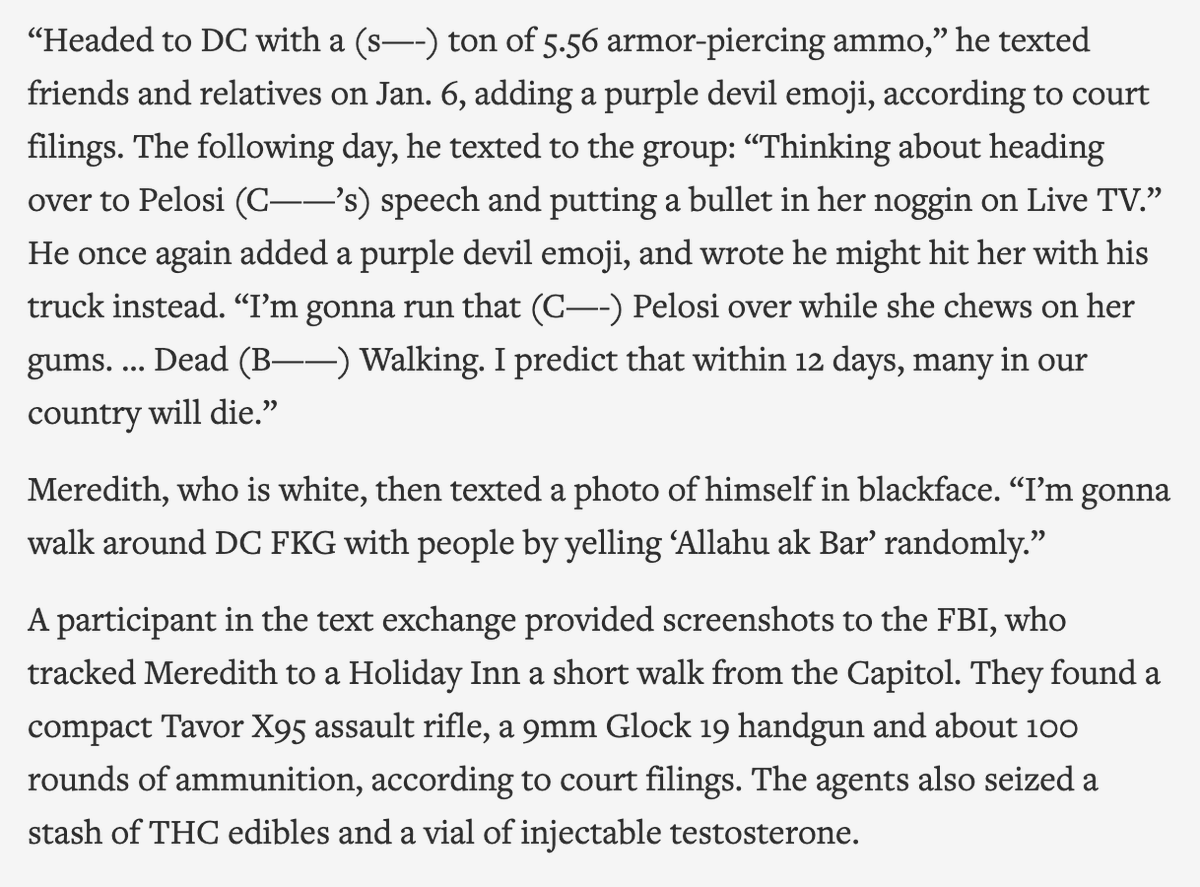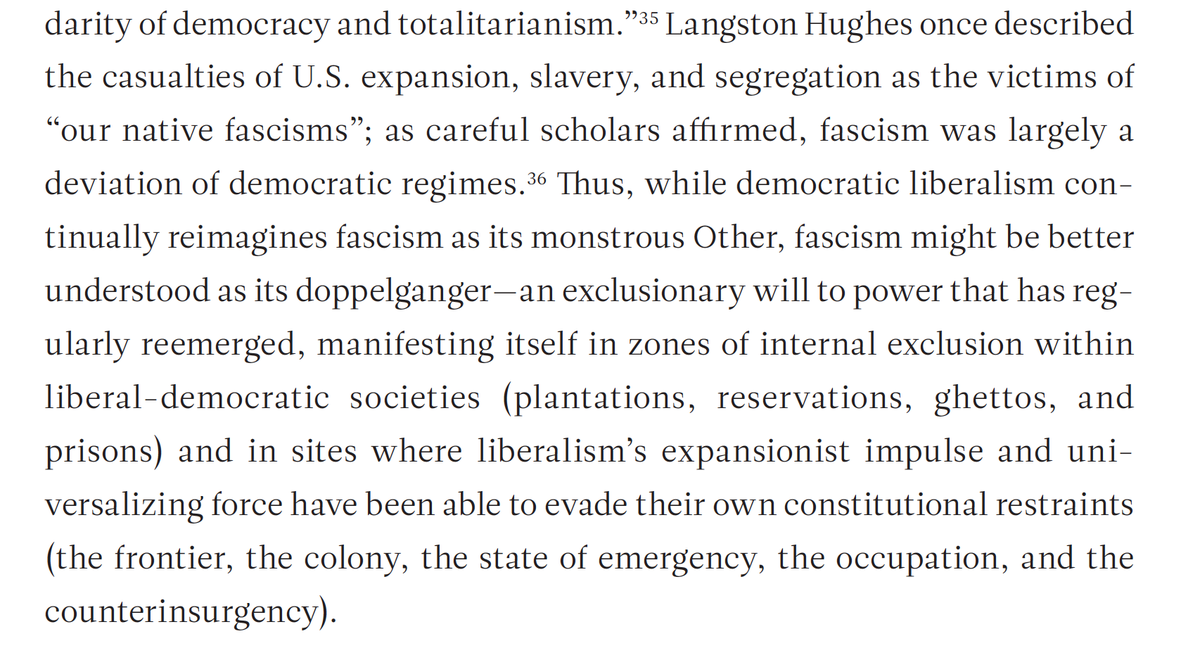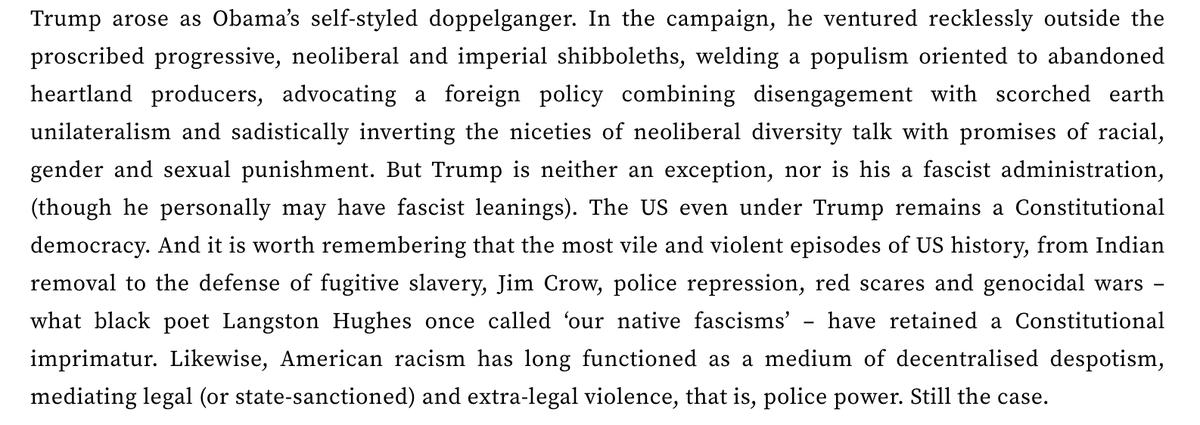My last book argued that in US history inner and outer wars have reciprocal effects, that the rise of Trump was conditioned by the war on terror, and that serially produced racial nemesis is the basic, animating force of the far right. Encapsulated here: https://apnews.com/article/us-capitol-trump-supporters-1806ea8dc15a2c04f2a68acd6b55cace
I have long argued the specter of fascism shadows US politics, though I have demurred when it comes to describing the Trump Administration in those terms, and continue to think that claim is muddled when it comes to understanding the balance of forces in the country at present.
If fascism flowers, it will do so with badge, brandishing the Constitution. This is where is gets trickier, since the mob that came to Congress calling for military tribunals and summary justice view themselves as true bearers of constituent, sovereign power and force of law.
But careful assessment of this force is important; though dangerous, it's not close to taking power. This is why Trump's relative strength and weakness matters to the argument. Inflating the power of the far right in the name of vigilance can be as problematic as denying it.
The risks include augmenting the constituted police powers of the state and inhibiting or even destroying our ambition and creativity to forge the real constituent power which we will need to bend the dispensations of government toward liberty and justice for all.
Good reasons not to overstate the specter of far right power facing public opprobrium, prosecution and investigation. Valid concerns that it will devolve into more cellular violence. Bigger concern is the intensified corporate control of our public sphere that maybe here to stay.

 Read on Twitter
Read on Twitter




